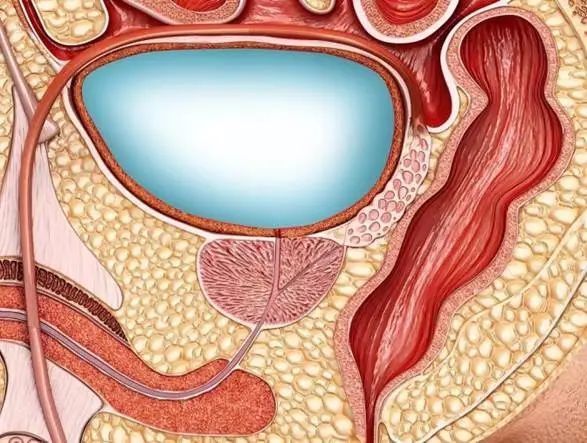Bladder cancer is the most common tumor in the urinary system. Data shows that the prevalence of bladder cancer ranks first among male urogenital tumors in my country. Although the incidence of bladder cancer is relatively high, as long as prevention, accurate diagnosis, and precise treatment are carried out, patients can achieve better treatment results and quality of life.
The main function of the bladder
The bladder is a very important organ in the human body. It has two major functions, urine storage and urination.
What are the symptoms of bladder cancer?
Symptom 1: Intermittent, painless, gross hematuria. The patient’s urine is blood-like in color. Because the surface of the tumor is very fragile, there are many new blood vessels. Once the blood vessels are broken, the blood will flow into the bladder and be excreted together with the urine, so it is called hematuria. The whole process refers to the blood in the urine from the beginning to the end of a urination. Intermittent is because the blood vessels sometimes repair and the urine is normal.
There is a situation where the urine cannot be seen red with the naked eye, but there are red blood cells under the microscope. This kind of hematuria under the microscope should also be paid attention to.
Symptom 2: frequent urination and urgency. The nerves in the two ureteral orifices and the inner orifice of the urethra are relatively sensitive, and if they are stimulated by the lesions, there will be symptoms of wanting to urinate.
Symptom three: low back pain. The urine received by the bladder comes from the kidneys and ureters. If the tumor grows in the position of the opening of the ureter, blocking the opening of the ureter, the urine in the kidney cannot come out, which will cause increased pressure in the kidney, hydronephrosis, and lower back pain.
Symptom four: dysuria. Under normal circumstances, bladder cancer is painless, but some patients have a very large tumor, ulceration on the surface, infection and inflammation, and they will feel pain in urination.
Can long-term hair dye cause bladder cancer?
About 20% of bladder cancer patients are associated with aromatic amines containing naphthylamine or benzidine. There is a study by the Medical College of Southern California in the United States that there are more than 900 cases of bladder cancer caused by long-term exposure to hair dye.
In our daily life, we should try our best to avoid contact with products containing aromatic amines.

Does holding back urine cause bladder cancer?
There is no direct evidence of bladder cancer induced by holding back urine. The function of the bladder is to store urine, and the mucosal layer has a certain barrier function and will not absorb urine toxins. However, after the bladder is overfilled, the contraction force of the bladder muscle layer becomes weak, and the bladder’s urine storage and urination functions are affected.

Can eating a lot of fructose syrup cause bladder cancer?
Fructose syrup produces a fatty acid that promotes tumor cell growth in mice and may increase colon cancer cells, but no animal studies directly show that high-fructose syrup increases bladder cancer disease risk.
Can eating more tomatoes prevent bladder cancer?
The antioxidant component of tomatoes, only found in animal studies, has the potential to prevent cancer. Men can eat more cruciferous vegetables such as cauliflower, broccoli, radish, and Chinese cabbage. These vegetables contain indoles, glucosinolates, which can reduce the growth of cancer cells. You can also eat more citrus fruits such as oranges, oranges, grapefruit, and lemons. The carotenoids and coumarin they contain have potential anti-cancer effects.

What are the risk factors for bladder cancer?
Smoking: The relationship with bladder cancer is clearer.
Occupational exposure: In the chemical fuel, rubber industry and other special occupations, in the production process of related products, they will be exposed to some volatile aromatic amines harmful substances, which are related to the incidence of bladder tumors. Protect as much as possible.
Urinary tract diseases: Cystitis caused by parasitic diseases and chronic inflammation, long-term untreated, gradually causes urothelial carcinomatosis.
Family history: If your immediate family has bladder cancer, you should be on high alert.

“Workplace Health Class” on February 27 invited Xing Nianzeng, chief physician of the Department of Urology, Cancer Hospital, Chinese Academy of Medical Sciences, Beijing Tsinghua University Li Jianxing, Chief Physician of Urology Department of Chang Gung Hospital, Zhang Gang, Deputy Chief Physician of Urology Department of Beijing Tsinghua Chang Gung Hospital, Wang Xiaochun, Registered Dietitian of Chinese Nutrition Society, talk to you about how to stay away from bladder cancer!
Please watch it
“Workplace Health Lesson” will be broadcast at 19:30 on February 27
“How to stay away from this kind of male-preferred cancer”< /p>
Please indicate “CCTV Finance” for reprinting
You will follow
Source: CCTV Finance “Workplace Health Lesson”
Producer: Ke Chengyun
Editor of this article: Zhang Shuang
Keep paying attention! ↓↓